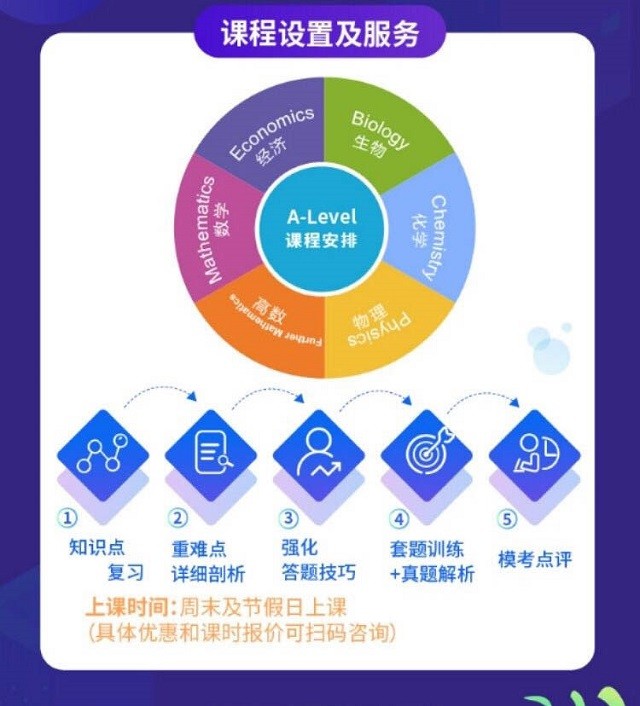
大家在复习AL经济的时候,不论再怎么精简,也很难忽略 Money supply 这个ALEVEL经济知识点。那本文就来整理一下相关概念,拿去检测一下你目前的掌握情况吧。

Alevel经济学知识结构严谨,涵盖微观经济学预烘干经济学的基础经济理论、主要经济模型且考核方式多元化,有选择题、数据分析题、小论文题。
在考查经济学理论基础的同时,学员可以全方位提升逻辑分析能力、批判性思维能力英语与写作能力。
ALEVEL经济考试试卷分为Paper 1和Paper 2,分别是AS阶段的选择题和大题,占40和60%分值比例。
试卷Paper 3和 Paper 4分别是A2阶段的选择题和大题,分别占35%和65%的分值比例。
Money Supply
Money supply分为:broad money和narrow money。
Narrow money 指现金+活期存款 (流动性强→用于交易)(即时购买力),但是商业银行的库存现金分为两部分:
1)用于客户提现 (算在 narrow/broad money 中)
2)用于银行日常开销 (不算在narrow/broad money 中)
Broad money 指 Narrow money + 储蓄存款 + 定期存款(潜在购买力)
NM过高, BM过低: 需求强劲,投资不足, 有涨价风险NM过低, BM过高: 投资过热,需求不足,有商品积压风险。
中央银行的职能:
Organisationof issue currency:To issue money
Bank ofother commercial banks:
To accept the deposit of other commercial banks, provideloan for commercial banks
Drafter andexecutive of monetary policy :
To carry out monetary policy to manage the economy
Represent the national/state treasury:
To manage government expenditure, manage the exchangereserve
第二个是Accounting equation:
Asset = Liability + Ownership/Equity
Assets are valuable resources owned by the entity.
第三个是The credit creation,也是考试中经常出现的ALEVEL经济知识点,往往以计算题的形式。
Reserves are deposits that banks have received but have notloaned out.
Reserve ratio is the fraction of deposits that banks hold asreserves.
Reserverequirements are regulations on the minimumamount of reserves that banks must hold against deposits.
Total deposits created = Initial deposit×(1/Reserve ratio). Created deposit = Total deposit -Initial deposit.Credit multiplier = 1/Reserve ratio Credit multiplier: theamount of money the banking system generates with each dollar of reserves.

什么情况下money supply会变?
1) Government borrows money from central bank orcommercial bank. If a budge deficit is financed by borrowing from commercialbanks or the central bank, the money supply will increase.
When the government borrows $10 million from central orcommercial banks, the government spends $10 million to buy goods. Therecipients of $10 million and pay them into their bank accounts. These depositsincrease the liquid assets. It also increases bank’s ability to lend. Therewill be a multiplied expansion the money supply.
2) Government borrows money from non-bank private sectoror public. If a budget deficit is financed by selling government securities tothe non-bank private sector or public, the money supply will remain unchanged.
When the government sells $10 million securities to thenon-bank private sector or public. Purchasers draw $10 million money out oftheir bank deposits. The government spends the money, recipients will beredeposited to banks. There is no increase in money supply. Existing money justchange hands.
3) If a budget deficit is financed by selling governmentsecurities to the non-bank private sector or public, government don’t spendsthe money, it causes a fall in liquid assets of bank, as money is withdrawn.The lending will fall.
When a government sells securities to the non-bankprivate sector or public. Purchasers draw money out of their bank deposits. Ifgovernment does not spend the money, a fall in liquid assets of bank, as moneyis withdrawn. The lending will fall.
最后,这个ALEVEL经济知识点要记住:
如果政府卖出 bonds, 然后不花作为 reserves → Money supply下降
如果政府赎回 bonds, government has to pay cash to private,increasing the deposits → Money supply上升
标化成绩是申请英国大学不变的前提,眼看今年的ALEVEL秋季大考快到了,如果担心无法好好地把握补考机会,也可以点击预约试听【ALEVEL同步培训班】,为申请、竞赛、语言考试等事宜省出更多准备时间——
涵盖CAIE、EDX、AQA、OCR、WJEC
等众多考试局和15+选课科目
针对不同类型学员定制课程
更有助教团队不断提醒学员家属
学员们的学习进度
帮助构建完整知识图谱


看完这个ALEVEL经济知识点,你还可以看↓
2021alevel怎么选课?有数学和高数就能匹配超多热门专业

学习有方法,成长看得见
筑梦牛剑/G5/常春藤
